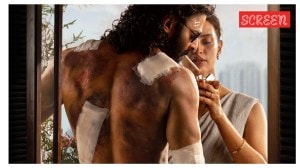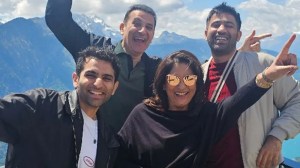Justice Commission
CHANCES are you hadn8217;t heard of Justice Girish Thakorlal Nanavati, 70, a week ago. It is even less likely that you had heard of him whe...

CHANCES are you hadn8217;t heard of Justice Girish Thakorlal Nanavati, 70, a week ago. It is even less likely that you had heard of him when he was a Supreme Court judge from 1995 to 2000. Well, let8217;s say it wasn8217;t given to him to deliver any landmark or high-profile judgment. Yet, after his retirement in February 2000, he suddenly found himself in great demand, perhaps more than other superannuated judges. He holds the record of heading four Commissions of Inquiry.
One of them has just made him a household name. For it is the first time a minister, that too a Central minister, has lost his job because of his indictment in a massacre. Jagdish Tytler8217;s downfall has raised expectations of another dramatic fallout from Nanavati8217;s still pending assignment to probe the Gujarat riots.
For somebody who had a rather unremarkable record in the courts, Nanavati has this historic honour of judging the great political debate on how different was the Congress8217; role in 1984 from the BJP8217;s role in 2002.
It was odd enough that almost 16 years after the Delhi massacre, the Atal Behari Vajpayee government entrusted him with the responsibility of conducting a re-inquiry. And then, two years later, in a bizarre coincidence, the Narendra Modi government chose him to look at the Gujarat riots as well.
So, it is but natural that his recently tabled report on the 1984 massacre is being closely scrutinised to spot any indications of what his findings on Gujarat will be. Since Nanavati has given a clean chit to Rajiv Gandhi and, indeed, the entire 8216;8216;top leadership8217;8217; of the Congress, there is intense speculation on whether he has prepared the ground for a similar exoneration of Narendra Modi and the BJP.
ONE of the terms of reference of the Nanavati Commission probing the 1984 killings was to determine whether those 8216;8216;heinous crimes could have been averted and whether there were any lapses or dereliction of duty in this regard on the part of any of the responsible authorities/individuals.8217;8217;
In the case of his Gujarat inquiry, the Modi Government specially added the political aspect in 2004, in a bid to pre-empt the Manmohan Singh government from appointing a parallel probe. Thus the terms of reference of the Commission probing the Gujarat riots were extended to cover 8216;8216;the role and conduct of the chief minister, ministers, government officers, other individuals and organisations8217;8217;.
The fact that he repeatedly received assignments from BJP governments, not surprisingly, gave him the image of being that party8217;s favourite. Nanavati reinforced that public perception by putting his foot in the mouth every now and then in his interaction with the media.
The most notorious example of his indiscretion being the statement he made two years ago that the evidence recorded till then in the Gujarat probe did not indicate any serious lapse on the part of the police or administration. He was widely criticised for making it harder for riot victims to come forward with evidence.
Nanavati8217;s report on the 1984 massacre highlighted another perceived bias: his sympathy for the police. Many police officials were let off by him despite all evidence of failure. He did not think it fit to make any recommendation against even the SHO in charge of Trilokpuri, which saw the single largest massacre in any locality.
Before he became a judge of the Gujarat High Court in 1979, Nanavati was for many years a counsel for the prosecution. The nature of his legal practice seems to have played a significant role in determining his position on human rights.
For all such weaknesses, Nanavati made history by not sparing the likes of Tytler and H.K.L. Bhagat even as he put them in the category of 8216;8216;local CongressI leaders8217;8217; to distinguish them from top leaders who were exonerated.
- 01
- 02
- 03
- 04
- 05































